In this edition of Sliced, the 3D Printing Industry news digest, we cover the latest business developments, partnerships, and acquisitions across our industry.
Today’s edition features the most up-to-date distribution deals, a host of new 3D printing materials, aerospace advancements, software updates, AM awards, and a 3D printed treasure trove.
Read on for the most recent updates from AM Solutions, PyroGenesis, Siemens, miniFactory, Makelab, ROBOZE, AMCM and more
New distribution partnerships for Nexa3D and Rosler brand AM
Beginning with distribution deals, and California-based SLA 3D printer manufacturer Nexa3D has announced that additive manufacturing (AM) reseller 3DZ Group will become a supplier of its 3D printers. The collaboration comes as part of a broader expansion of Nexa3D’s reseller network, and its ambition to deliver speed and productivity upgrades to those using legacy stereolithography printers. Throughout the Covid-19 outbreak, the company has continued its expansion, to help its customers increase their design agility and supply chain resiliency. In addition to providing products from other 3D printing companies, the 3DZ offers training, maintenance, consultancy and on-demand 3D printing services to clients around the world.
“It is full speed ahead for us at Nexa3D as we continue to expand our global reseller network, and we’re honored to partner with a company with the vision, reach and proven performance of 3DZ,” said Avi Reichental, Executive Chairman & CEO of Nexa3D. “Manufacturers are adapting processes to become much more agile in their design and resilient in their supply chain in the face of changing circumstances.”
Nexa3D also revealed that after a series of new reseller deals, its global distribution network now spans four continents. Distributors from Portugal, Poland, South Africa, the Netherlands, Belgium and North America, will now supply the company’s 3D printers and materials. The new resellers include Polish eShop 3D Phoenix, Portuguese resellers Emetrês, Belgian and Dutch distributors SEEDA, South African company Additive Manufacturing Solutions (Pty) and American firm Big Systems.
“Nexa3D printers offer speed, precision and automation, to give our customers the boost they need to reach their goals and adjust as needed to changing conditions,” said Big Systems President Joe Jones. “We are very excited that Nexa3D printers will be a strong part of our collection of leading brands, with their ability to provide manufacturers high-quality and next-generation speed.”
AM Solutions, the Italian 3D printing subsidiary of the Rösler Group, a German company specializing in surface finishing solutions, has signed a distribution deal with Swedish company KMC Ytbehandling. The agreement will see the KMC become sole distributor for AM Solutions’ products and services in Sweden, and see the company marketing the products produced by partners PostProcess Technologies and GPA Innova. Located in Järfälla, the Swedish company has been active in the field of surface treatment for over 30 years, in the fields of mass finishing, shot blasting, balancing and industrial part cleaning at five locations across the country. KMC joins a global list of AM Solutions resellers, that allow companies to quickly implement 3D post processing solutions, which are tailor-made to their needs.
“KMC is a competent and innovative partner with a lot of experience and know-how in the Swedish market. The company is known for its comprehensive expertise in customer support including service. This will allow us to jointly assist the customers with their additive manufacturing needs,” said Manuel Laux, Head of Digital Transformation, Additive Manufacturing at AM Solutions.
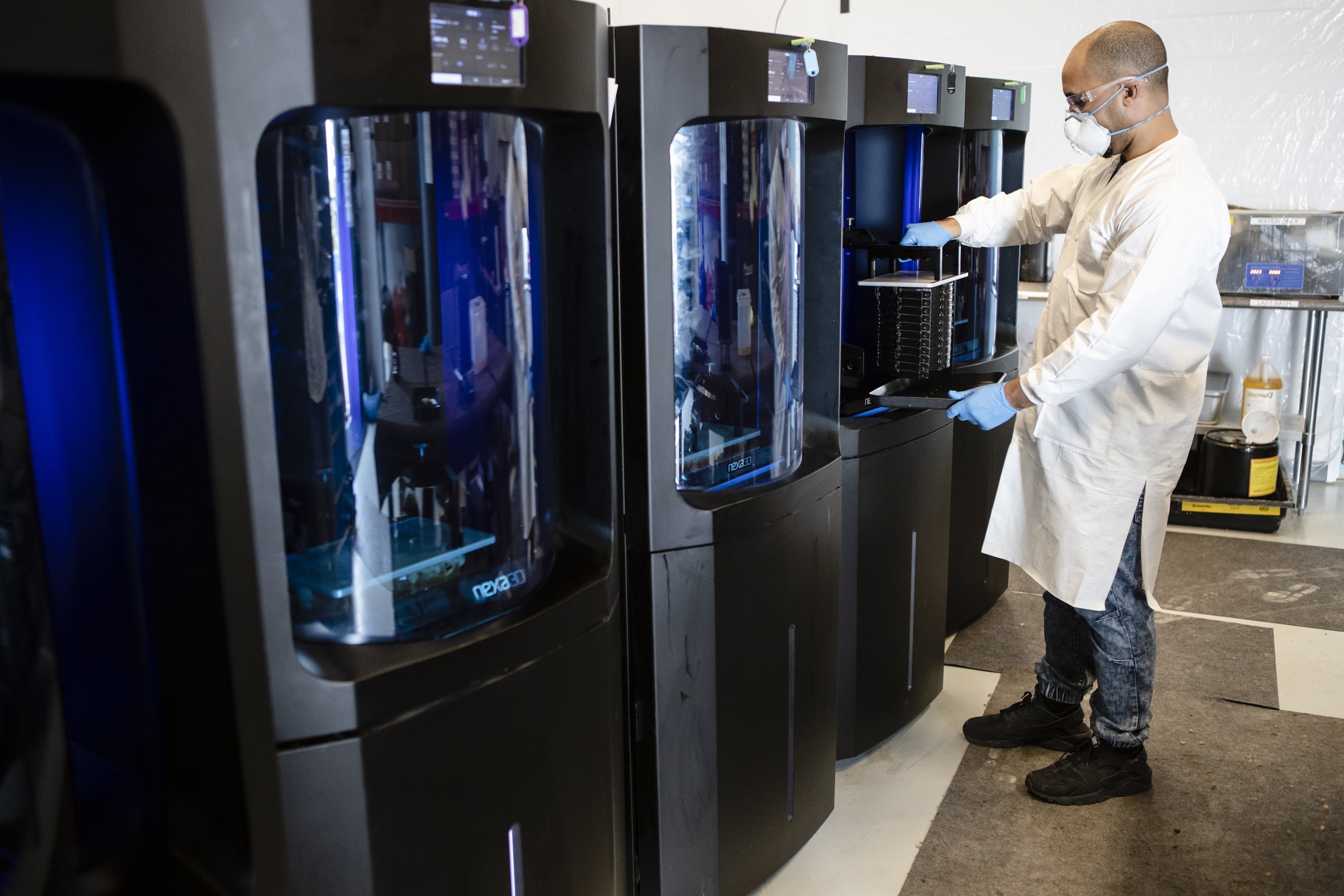
The latest 3D printing materials from Tethon 3D, Rio Tinto, HP and PyroGenesis
Nebraska-based 3D printing materials manufacturer Tethon 3D has launched a new tethonite mullite ceramic powder. Designed for use in binder jetting additive manufacturing, the powder is based on the Mullite mineral which is often used for refraction, and only occurs naturally on the Isle of Mull, off the western coast of Scotland. Its non-conductive, shock-resistant, chemically-stable properties make it suited to applications in the metal and ceramic manufacturing industries. Tethon also announced the upcoming release of a beta version of UV curable mullite ceramic resin for SLA and DLP 3D printing, which is reported to share the same characteristics.
Global mining and metals group Rio Tinto, has developed a new process to extract high purity scandium oxide, from by-products generated in the production of titanium dioxide. Scandium is a silvery-white, rare earth metallic element that’s used to improve the performance of power sources for buildings, and high-performance aluminum alloys for 3D printing. Researchers at Rio Tinto’s RTFT Research & Development Centre, developed the method in the second half of 2019, and since then, they have been perfecting the material to meet market specifications. The process is now being used on a larger scale in a pilot plant, with the potential to lower production costs, without any further investment from the firm.
PyroGenesis, a Montreal-based 3D printing metal powder specialist, has announced that its quality management system for the production of 3D printing metal powders, has been approved by a premier non-European aerospace company. The company’s NexGen Plasma Atomization System, produces 25 kilograms of metal powder per hour, a faster rate than the production levels of existing materials, according to PyroGenesis. Moreover, this was achieved at a lower cost per kilogram, while maintaining the characteristics demanded by the industry, including oxygen continent, flowability and density. The name of the aerospace company who approved the system, has been withheld for competitive reasons, the company said.
“Although this does not guarantee any future orders and, on the face of it, may seem to be a minor and expected development, it is in reality very significant as it complements the cutting-edge improvements we have made with our NexGen technology, and is a key and fundamental step forward,” said PyroGenesis CEO Peter Pascali.
HP’s 3D printing arm has launched a new polypropylene (PP) material for additive manufacturing. The PP is a versatile, durable, and chemically resistant powder, which has been designed to have properties enabling high reusability. Produced for use in HP’s Jet Fusion 5200 3D Series printers, the resin is suited to customers in the automotive, consumer, industrial, and medical sectors. Developed in partnership with chemical production company BASF, the versatile material has the same properties as commonly used PPs in injection molding, such as chemical-resistance, low moisture-absorption, and long-term durability. The new resin delivers high productivity and minimizes waste for industrial-level manufacturing, enabling up to 100% reusability of surplus powder. HP will continue to work with its partners Henkel, GKN Powder Metallurgy, Oechsler and Prototal, to find new applications for its new PP material.
“HP and Forward AM by BASF, share a deep commitment to accelerating the shift to digital manufacturing by delivering innovative, sustainable solutions and materials that open up entirely new opportunities,” said Ramon Pastor, Interim President of 3D Printing and Digital Manufacturing, HP Inc. “The powerful combination of the world’s leading materials science, and most advanced 3D printing capabilities, yields superior quality, reliability, workflow, and cost savings for customers.”
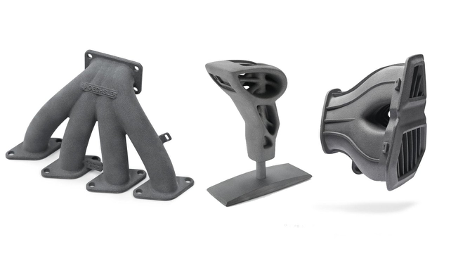
HP announces new business partnerships with BASF and Oechsler
Further news from HP and BASF; the two firms have announced an expansion of their strategic collaboration in additive manufacturing. The companies are working closely with partners in the auto, consumer, medical, and industrial manufacturing sectors to open new market opportunities, jointly develop new applications, and achieve more sustainable production. The cornerstone of the partnership is their new PP 3D printing material, and its overall aim is to enable companies to 3D print parts faster, more sustainably, and at higher volumes than before. BASF and HP have a history of working together. BASF was one of HP’s first partners in 3D printing, and the companies have collaborated on sustainable materials, such as the ULTRASINT TPU01 thermoplastic polyurethane released last year.
“The advancement of our long-standing partnership with HP truly demonstrates our shared vision to help transform industries, enable sustainable production, and enable our customers to shape the Additive Manufacturing industrialization,” said François Minec, Managing Director, BASF 3D Printing Solutions.
HP also announced a new agreement to work closely with engineering solutions provider Oechsler, to accelerate the mass production of 3D printed parts. The companies will work together across the product life cycle, from new designs to final parts production, to develop new applications for customers in the automotive and medical industries. As part of the deal, Oechsler has installed a fleet of HP Jet Fusion 5200 3D printers at its factory in Ansbach, Germany. Oechsler is also the first to use the joint post-processing solution developed by Rösler for the HP Jet Fusion 5200 Series, and will be able to take advantage of HP and BASF’s collaboration, by utilizing the newly-produced materials too.
“The path to digital manufacturing requires a powerful and far reaching ecosystem of leading innovators, and this new alliance with Oechsler is a significant step in the journey,” said Ramon Pastor, Interim President of 3D Printing and Digital Manufacturing, HP Inc. “Oechsler understands what it takes to deliver value every step of the way, from application design to final parts production to post-processing and automation, and together we will grow and accelerate opportunities for our customers.”
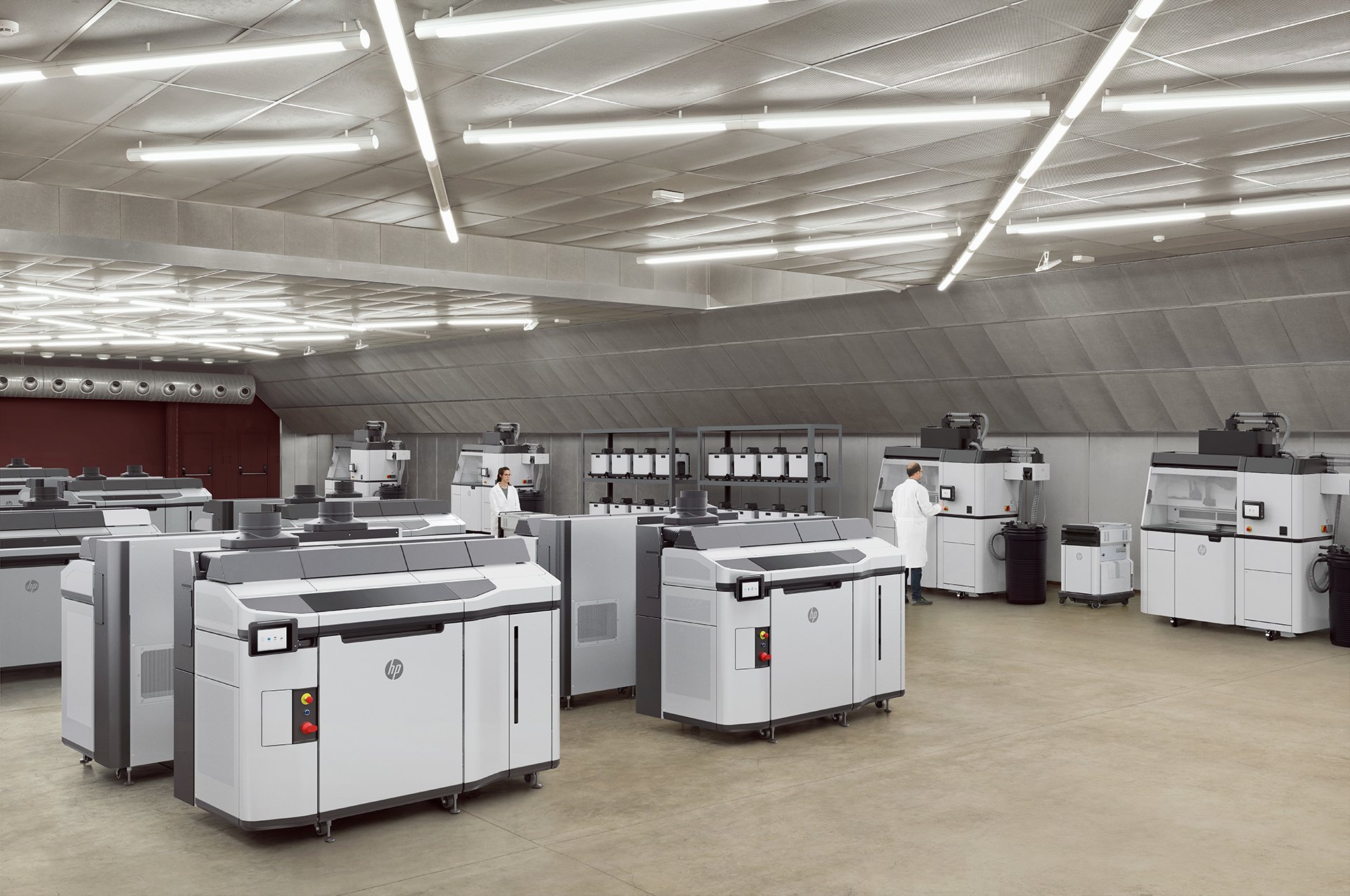
AMCM launch new metal 3D printers
AMCM, a subsidiary of the EOS Group, has announced the serial production of its AMCM M 4K-1 (single laser) and AMCM M 4K-4 (four laser) industrial DMLS metal 3D printers. Building on the EOS M 400 platform, the AMCM M 4K is tailored to produce large components with a height of up to one meter, and features a build volume of 450 x 450 x 1,000 mm. Additional features include increased robustness of the frame design, a new filter system (RFS 2.0), and optional soft recoating. The 3D printer can create products from a wide range of materials, including aluminum (AlSi10Mg), nickel alloy (IN718), and copper alloy (CuCr1Zr). In addition, the system is compatible with legacy EOS M 400 Series process parameter sets, and features open software, for process optimization with its high power laser.
“The AMCM M 4K is a wholly new offering that we have been perfecting for two years. What customers can appreciate, is that its underpinnings are that of the EOS M 400 processes, which are the benchmark for metal 3D printing,” said Martin Bullemer, Managing Director of AMCM. “Our team is extremely proud of this system now producing the biggest, highest quality metal powder-bed 3D printing applications in the world.”
Volkswagen working with Farsoon to produce AM car parts
FAW-Volkswagen Automobile Co. Ltd, a joint venture between the FAW Group, Volkswagen and Audi, has announced that it’s producing prototypes using Farsoon’s Laser Sintering technology. The deal will see more than 5,000 parts a year manufactured by Farsoon 3D printers, including functional prototypes of components like bumper guide brackets and air ducts. Parts such as air duct components are usually produced using blow molding techniques, but this can be expensive, and take up to three months to be delivered, but 3D printing accelerates this process. The collaboration will also see FAW monitor the effectiveness of the parts produced, evaluate the time taken to fabricate it, and the functional performance and environmental requirements of the components. Prototype parts delivered so far, are reported to show good resistance performance under temperature, and optimal strength during impact testing. Using 3D printing also saw a reduction in design to physical part time from 78 hours to 14 hours, and a reduction in production cost by 72%.
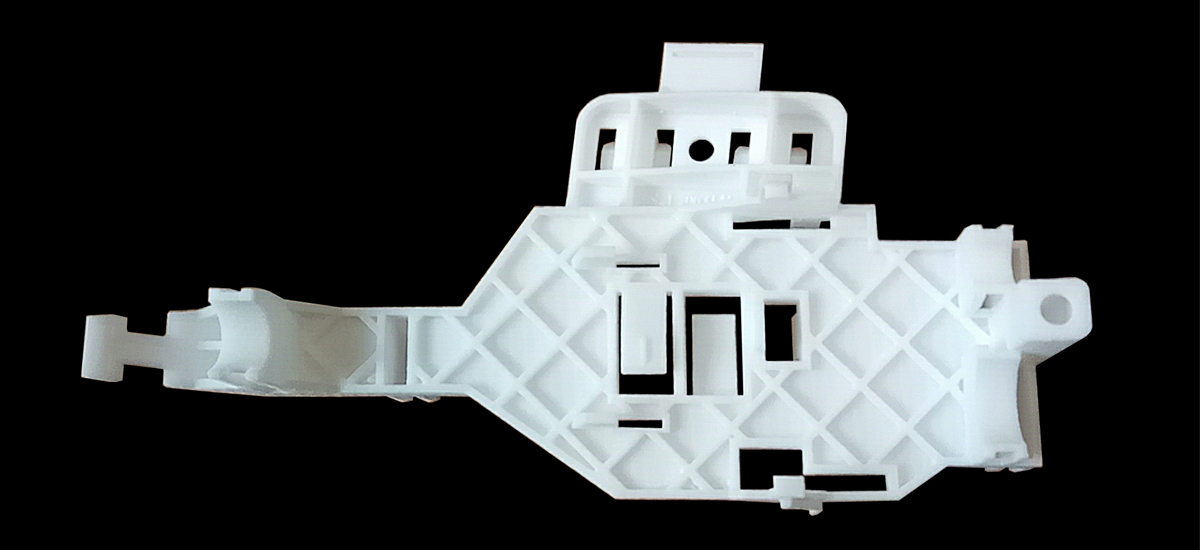
Software updates from Siemens and Thor 3D
Industrial manufacturing company Siemens, has updated its Simcenter system of simulation solutions. As part of the company’s Xcellerator portfolio, the software is designed to enable engineers to rapidly build digital twins, before the first physical prototype becomes available, and thereby optimize the interactions between its systems. According to Siemens, the update makes the software more customizable and easy to use in numerous ways. The Amesim software for instance, now brings more accuracy and speed for setup, measurements and simulation results. Side-by-side installation also allows users to run different Flomaster software versions on the same client, helping to boost collaboration and efficiency in the workplace. Additionally, the Simcenter Webapp Server now supports Functional Mock-up Units (FMU), along with native Simcenter Amesim models. The model owner can then generate standalone FMU 2.0 for co-simulation within their authoring tool, and upload it onto Simcenter Webapp Server.
Thor3D, the developer of handheld 3D scanners, has announced the release of its ‘Calibry Nest’ software update. The latest version of the program comes with new features which are aimed at enhancing the program’s 3D scanning workflow, including its Live 3D feature which enables its users to perform preliminary data finalization. Using Live 3D during scanning to roughly assemble the whole scene on the go, customers can now evaluate the quality of the scan before loading it to the computer. Other tools have also been added, in order to improve workflow during post-processing. For example, reverse engineering and quality control specialists can now perform basic tasks in Calibry Nest, and the ‘Distance Map’ feature, allows users to compare two meshes to identify any deviation in geometry.
Californian provider of manufacturing solutions Saratech, has announced the acquisition of Apex Digital Manufacturing Solutions, a PLM software provider, from the Sconce Group. The deal will see Saratech take over all of Apex’s PLM software license and subscription sales, support services, and training classes. The company’s customers will benefit from bolstered PLM software and support resources, and the acquisition strengthens Saratech’s presence in the Northeast and Midwest regions of the U.S.
“We continue to build on our ability to support clients with all their engineering needs; from basic design support to their drive to Industry 4.0 and adoption of the Digital Twin,” said Saeed Paydarfar, CEO, Saratech. “Today, more and more customers understand the criticality of having a strong PLM implementation to be competitive in industry.”
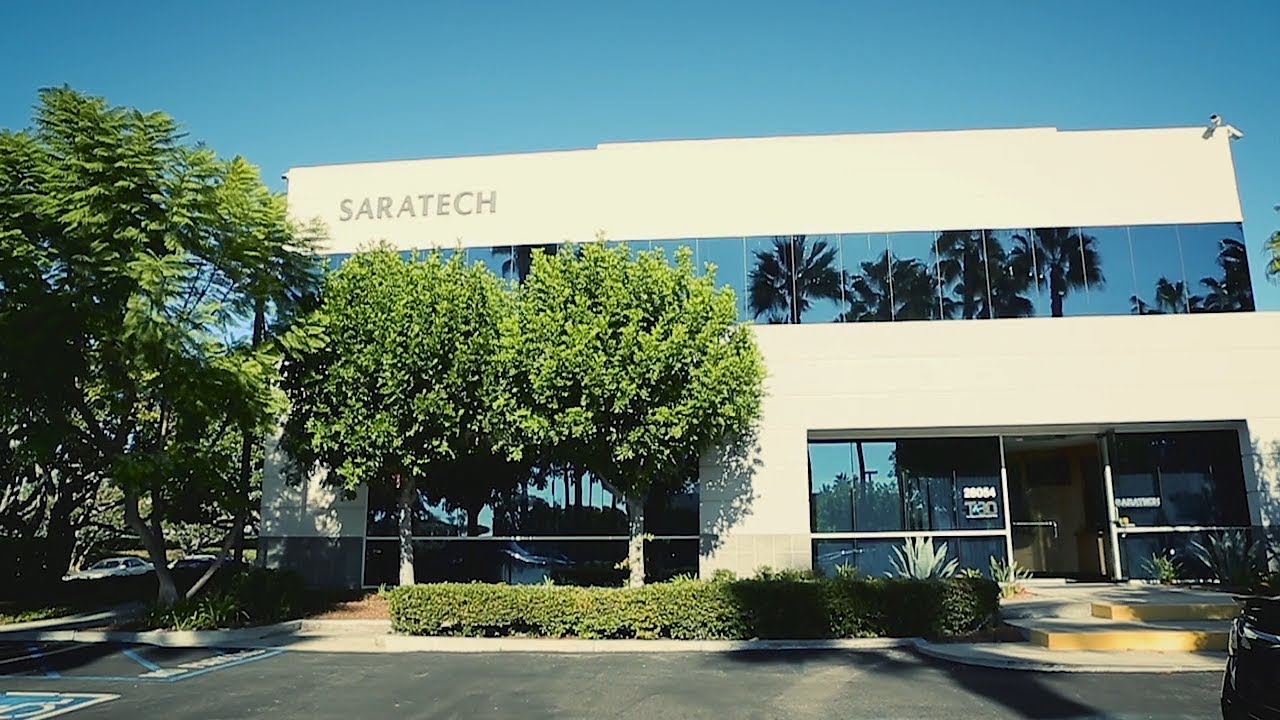
ROBOZE win big at 2020 American Business Awards
Italian-American provider of FFF 3D printing solutions ROBOZE, was named the winner of a Gold Stevie Award in the Startup of the Year, in the 18th Annual American Business Awards. The company, which produces 3D printers for technopolymers that are designed for extreme applications, and offers digital manufacturing solutions, won the award for its innovative approach to AM. ROBOZE is currently setting up a large operations hub in Houston, Texas. Set to be operational from September, the new HQ will host all of the business’ light manufacturing activities, pre-post sales operations and a large fleet of production 3D printers, to produce parts for its American customers.
“America is our second home. This recognition makes us full of pride.” said Alessio Lorusso, ROBOZE CEO. “ROBOZE is committed to help American manufacturing companies in just in time and on demand production, cutting costs and time. This award is yet another confirmation that we can bring manufacturing back to America thanks ROBOZE 3D printing solutions”.
Additive aerospace advances by Ozark, nScrypt and miniFactory
Finnish 3D printing company miniFactory and the Royal Netherlands Aerospace Centre (NLR) are collaborating to investigate the certification process for aerospace industry parts manufactured using the FFF 3D printing technology. Focusing on printed carbon fiber, reinforced high-performance polymers and metal-filled polymers, the project will be carried out using miniFactory’s ULTRA 3D printer with the Aarni process monitoring system. The goal of the project is to find out which certification process works for parts manufactured with FFF technology, and how various things can be verified. The study will also investigate the compatibility of parts produced with specific applications.
“Additive Manufacturing offers huge potential for new innovations not only in aerospace but also in other fields. It is an excellent tool where flexibility in design and optimisation for weight are important design drivers. We are very excited about the collaboration between miniFactory and NLR. It is a very important expansion of the activities of NLR-MAMTEC and will drive research in the field of FFF technology to the next level,” said Bert Thuis, Head Structures Technology Department at Royal NLR.
Ozark Integrated Circuits Inc. (Ozark IC) is working with microdispensing specialist nScrypt’s research arm, Sciperio, to create high temperature electronic systems. Funded by a NASA Small Business Innovation Research (SBIR) Phase I research grant, the companies aim to develop a RISC-V processor that can operate on the surface of Venus, where temperatures range between from -932⁰F and -500⁰C. Ozark IC has worked closely with Sciperio in the initial phase of the project, to 3D print custom high-temperature metal traces onto high temperature substrates. These test coupons were printed on site at Sciperio, using an nScrypt 3Dn-450 Factory in a Tool, outfitted with a SmartPumpTM micro dispensing tool head, Keyence laser, and in-process camera to monitor line width and other features. Following a successful test of fabricated silicon carbide integrated circuits conducted by Ozark IC, funding has been renewed for a second phase of the program.
“Our adoption and adaption of AM, especially nScrypt’s products, is a game changer. Impressive performance (up to 800⁰C) has been achieved, all with the lower cost and fast turnaround metrics commonly found with AM. The unique quality and versatility of the nScrypt system, has enabled Ozark IC to develop new processes and products, and achieve amazing results in performance and turnaround time,” said Ozark IC CEO and founder, Dr. A. Matt Francis.

Pennsylvania State University acquires 3D printing archive
Ennex 3D, a company which compiled an archive of artefacts and digital files from the early days of 3D printing, has sold them to Pennsylvania State University. Having struck a deal in 2018, the university has been curating its more than 20,000 items, and has now published a finding aid for use by students, faculty, researchers, and the general public. Part of what attracted Penn State’s interest is the archive’s diverse contents, from fabricated artifacts to print resources and experimental materials from Ennex’s development laboratory. Matt Francis, former associate head of Special Collections, described the archive as “a cohesive ecosystem of the history of the technology.” The collection includes 90 objects fabricated as long ago as 1991 using the earliest 3D printers, and more than 300 books, 500 photographic slides and 12,000 digital files.
Ennex was represented in the acquisition by Arthur Fournier, a New York-based rare archives dealer with a focus on transformative cultural movements and technologies. Fournier explained that he took on the project because the archive “provides a unique overview of the historical circumstances surrounding the advent of 3D printing, a technology with explosive market growth and tremendous potential for transforming the means of production in modern society.”
Athena Jackson, head of Special Collections for the university at the time of the acquisition, said “This is an exciting collection that fits the mission of our new 3D printing lab. Our faculty are excited that a collection like this exists. It answers the ‘why’ question – helping to explain where the technology comes from.”
Makelab vow to be part of BLM movement change
It would be difficult to conclude this week, without mentioning events happening in the wider world and the Black Lives Matter movement. Brooklyn-based on-demand 3D printing service bureau, Makelab has committed to become part of the change, and to be a business leader that works towards a future free of racism, and with justice at its core. Founded by two people of color, the company was keen to highlight the diversity in its team, and its support for the black community. As a result, Makelab will be participating in Blackout Day 2020. Not only will the company not be accepting any new business on July 7th 2020, but it will also be taking part in a week of social media silence, to amplify voices in the black community. In addition, Makelab is working with retailer Made in NYC (MIN) to produce protective face shields for peaceful protesters in New York, to support those that are peacefully protesting.
The nominations for the 2020 3D Printing Industry Awards are now open. Who do you think should make the shortlists for this year’s show? Have your say now.
Subscribe to the 3D Printing Industry newsletter for the latest news in additive manufacturing. You can also stay connected by following us on Twitter and liking us on Facebook.
Looking for a career in additive manufacturing? Visit 3D Printing Jobs for a selection of roles in the industry.
Featured image shows the Sliced logo on Nexa3D’s NXE400 printer. Photo via Nexa3D.



